
© Universidade Nova de Lisboa








News
May 2018
MOOC: GEONATURA - Applied Geomatics to
Social and Environmental Issues
Starting May 20th
This is an international course in applied geomatics to socioenvironmental problems. It involves 4 European universities of excellence in the field of geographical information systems: U Nova of Lisbon, TU Delft, U Firenze and U Glasgow. The goal is to provide multidisciplinary training in applied geomatics to topics such as sustainable development and ecosystem services, land administration, architecture and build environment, sustainable forest and agriculture, smart sustainable cities, climate change, and renewable energy sources. This innovative 8-module course will allow you to choose alternative training paths according to your profile. This 8 weeks course is free, with approximately 80h of study and you have to complete a minimum of 4 modules to obtain a certificate. To register click here - https://miriadax.net/web/geonatura-applied-geomatics-to-social-and-environmental-issues-2-edicion- April 2018First blended learning mobility accomplished
in Scotland, UK
During one week (Monday 9th – Friday 13th April 2018) the first blended learning mobility of GEONATURA project was held in the University of Glasgow. Each partner university selected a group of highly qualified students of master degree and doctoral study programmes from Portugal, Italy, UK and the Netherlands. Scholarships were provided to 10 selected students of each country. During the week GEONATURA team covered 8 modules with their teaching staff for an audience of 40 students in an intensive in-class course with seminars and computer lab exercises. Module 1 - Sustainable Development (delivered by teachers of the University of Glasgow, UoG) Module 2 - Sustainable Water Environments (delivered by teachers of the University of Glasgow, UoG) Module 3 - Land Administration (delivered by teachers of Delft University of Technology, TU Delft) Module 4 - Architecture & Built Environment/ Point Cloud Modelling (delivered by teachers of Delft University of Technology, TU Delft) Module 5 - Sustainable Agriculture, Farming and Forestry (delivered by teachers of the University of Florence, UniFi) Module 6 - Sustainable Rural Development (delivered by teachers of the University of Florence, UniFi) Module 7 - Smart Cities (delivered by teachers of NOVA Information Management School, NOVA IMS). Module 8 - Climate Change & Renewable Energy (delivered by teachers of NOVA Information Management School, NOVA IMS). In the last day of the in-class course programme a series of seminars was provided by external experts and professionals in the field of Geomatics as a multiplier event. The full programme of the event can be accessed here. Students who accomplished this phase 2 of blended learning mobility were awarded with a certificate issued by all partner universities and 1.5 ECTS. Students who participated in this course in Glasgow were requested to follow the e-learning modules that will be made available from May 2018. Photos of the event can be accessed in ourMarch 2018
Students nominated for scholarships to first
blended learning mobility in Scotland, UK
Each partner university of GEONATURA consortium delivered during the month of February 2018 an introductory course on geomatics that served as the main criteria for selection of candidate students for scholarships to undertake the first planned blended learning mobility (BLM) to be held in the premises of the University of Glasgow, Scotland, UK. The introductory course had similar content in each partner university and it was named Geographic Information Systems: from data to decision making. Each partner university was responsible for organizing and assigning the lecturer(s) to be involved in this introductory course and also for the selection of the 10 best students in their respective countries to be granted with the scholarships for first BLM. Each student will receive a scholarship that will provide financial support to costs associated with travel and accomodation in an intensive in-class course that will address various thematic areas in geomatics distributed in 8 modules to be delivered during one week. This intensive in-class course named as round 2 of first cycle of BLM will be held in the premises of the University of Glasgow (Scotland, UK) during the period from April 8 to April 14, 2018. The list of nominated students by each partner university to the first BLM in Glasgow can be accessed here. The programme of the GeoNatura Blended Learning Mobility workshop & multiplier event can be accessed here. The first BLM is being organized by the School of Geographical and Earth Sciences of the University of Glasgow. Invited lecturers from this School and also from other partner universities will contribute in the teaching activities of the first BLM during the planned week.January 2018
Preparation for the first blended learning
mobility of GEONATURA project
Preparation of the module 0 Under the coordination of the Consortium leader - University NOVA of Lisbon - the period of preparation by partners for round 1 has been well completed, and the start-up is occurring in simultaneity at the four universities Glasgow, Florence, Delft and Lisbon. The announcement and call for registration of students to participate in stage 1 (introductory course on GIS – module zero) made in December 2017 and early January 2018 has been well received in the academic areas, and the number of candidates has largely exceeded the expectation. Among dozens of students who filled up the e-forms at each university, staffs will make a short-list of 20 candidates, totaling 80, who will attend to one-week introductory course in 30 hours of classes – module zero - following a common scope and itemization among universities. This will level candidates on the knowledge of fundamentals of GIS no matter their origin and nationality. Each partner university of GEONATURA consortium will deliver during the month of February/March a course for 20 students that will last 5 days (30 hours of training) and will take place in their own premises. However, nominated students can be those who are not regular students of the host university but resident in the same country. A certificate will be issued to all students who attend successfully this phase 1 of the course (module 0) and some faculties such as NOVA IMS will award 1.5 ECTS to those students who will accomplish the module 0 successfully. The best 10 students from each preliminary course offered by each partner university in their own premises will be selected on a final examination and will become participants of the BLM for round 1 in Glasgow, Scotland, UK. Those not selected could become eligible for trying the successive rounds to take place, and can also engage as users in the Geonatura MOOC as free lancers to be benefit by knowledge in a non-granted self-apprenticeship effort. The Programme and Agenda for the round 1 is ready and the event will occur from April 9, Monday to April 13. Friday in full time basis for all, comprising classes, workshop and multiplier event.GEONATURA consortium launched the kick-off
meeting in Lisbon, October 2017
The 3-day kick-off meeting having University NOVA of Lisbon as the host partner defined the fundamentals on scope, strategy, performance, assignment of responsibilities, time-schedules, organization, coordination, administration, communication and relation to Erasmus+ Agency. Partners have contributed to plan and solve questions for preparing the educational package in an OER platform, through a Massive Online Open Course (MOOC).The common understanding by Partners on the extent of the Open Educational Resource Platform for Geomatics Applications to Social and Environmental issues was fine. The focus of modules will be then driven to socio-environmental issues supported by geo-referenced data. The overall programme for the sequence of activities of the 4 rounds of teaching & training activities to granted students was decided to take place in Spring / Autumn 2018, and Spring / Autumn 2019. It will contemplate the preparation of 9 MOOC modules, including lessons and classes for the introductory course on Applied Geomatics and GIS – module zero. Also, it includes the structuring, organization and preliminary agenda for the BLMs (Blended Mobility) +MEs (Multiplier Event) and ROITs (Remote Online Training) the procedure for exam and certification of students followed by Referral Letters which are to be applicable to all 4 rounds. The 8 modules will be prepared under a scheme of permanent information exchange by partners to manage possible interfaces on subjects of themes and topics as well as to better explore synergy on relevant fields bringing innovation to the completely educational package. The overall strategy for provisioning innovation to the educational package was approved considering several toolboxes and software. It comprises story maps and animation to enhance teaching and training materials, synergy and interaction in transversal way among related subjects on different areas, customization of learning materials in modules according to academic orientation of students, coherence of initiatives in the overall strategy to assure dissemination for different audience. Also the means and resources to enhance dissemination were discussed with different types of links to enlarge scope of knowledge by users, and the organizing of a reliable stakeholders support either for services or products, together with an effective advertisement and e-marketing in the Internet community, including procedures for enlarging audience and assure sustainability of Geonatura MOOC.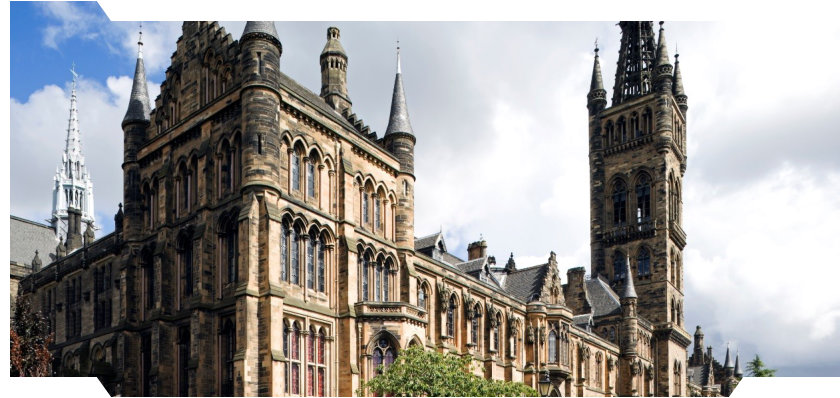
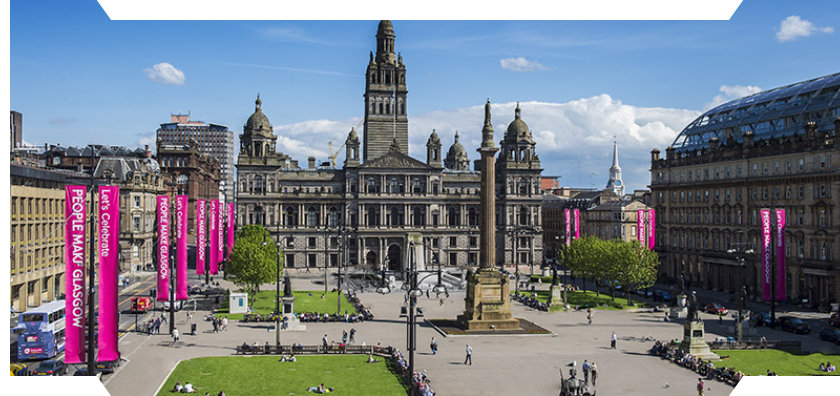


A Project funded by Erasmus Strategic Partnerships for higher education

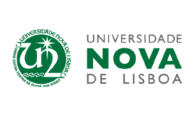
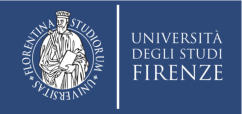
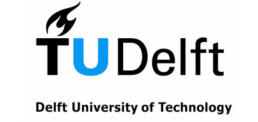
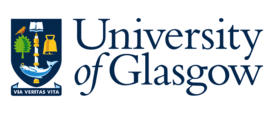

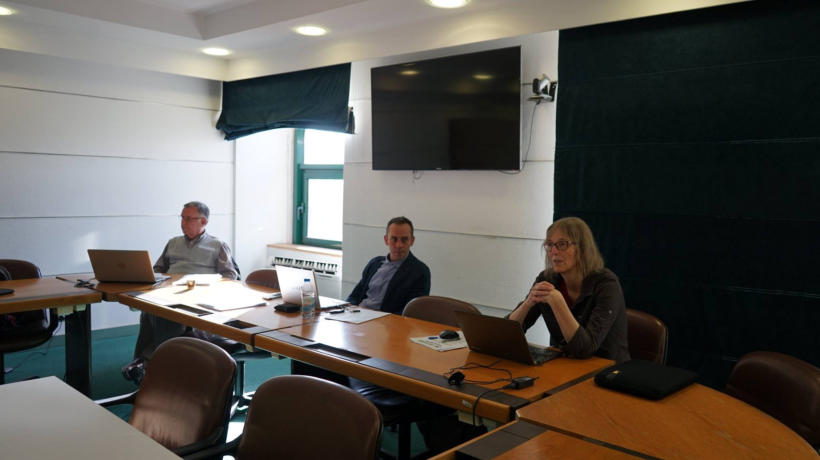
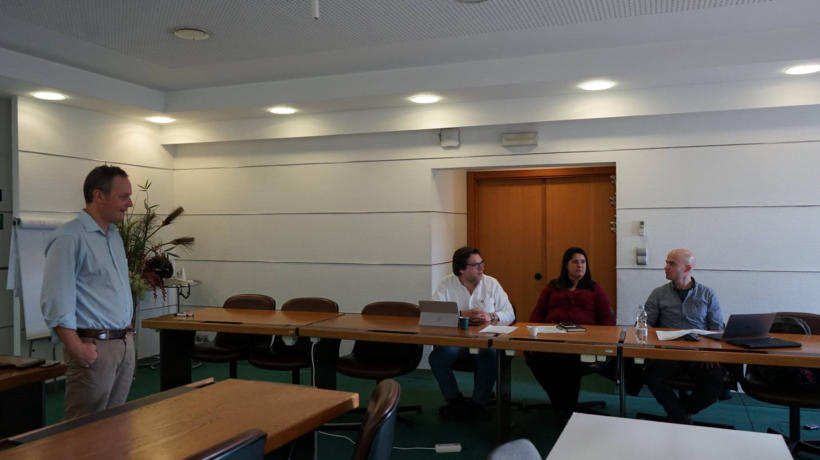
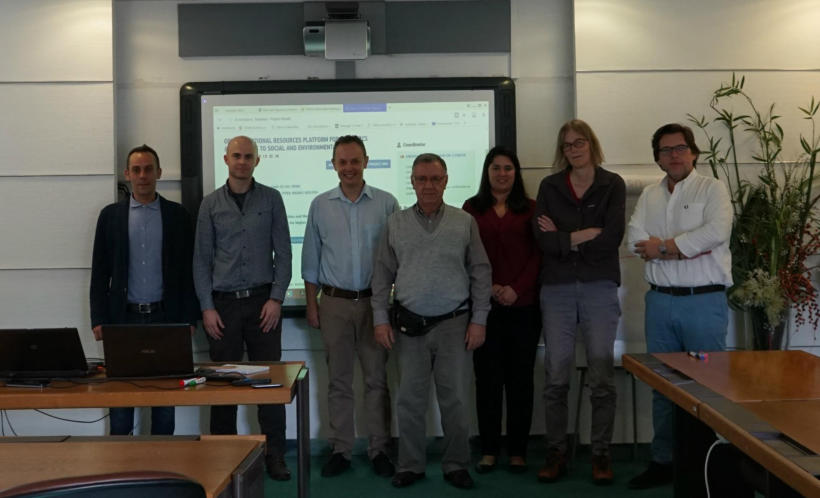

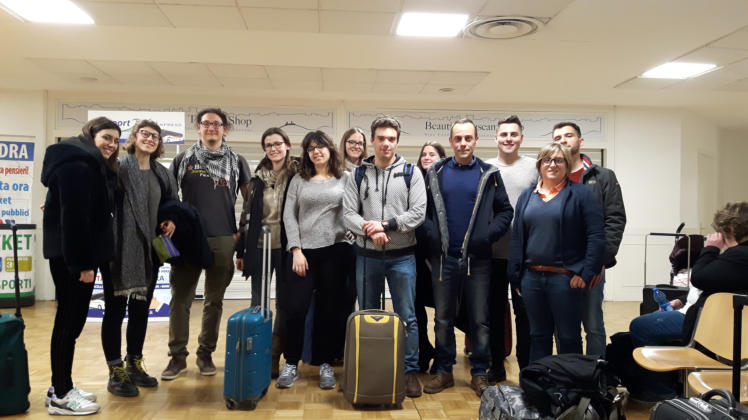

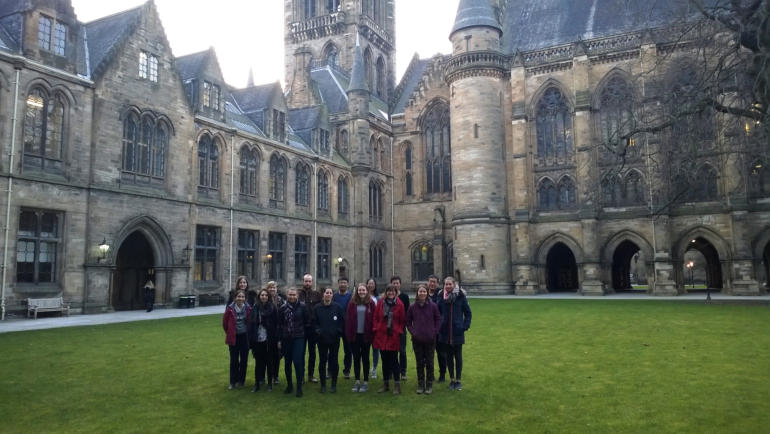
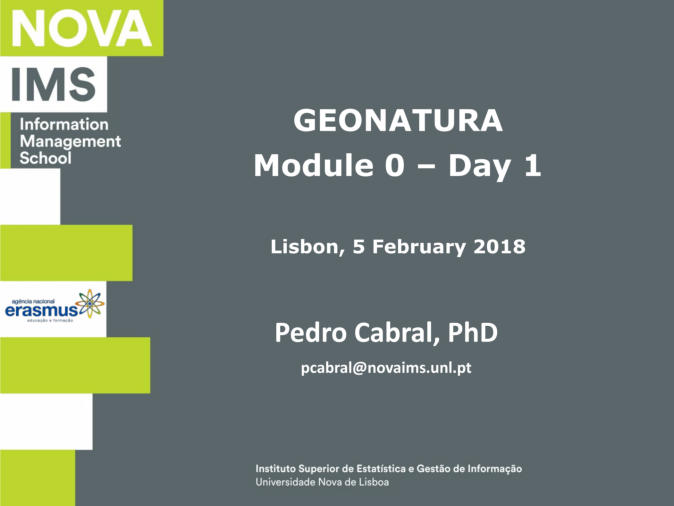
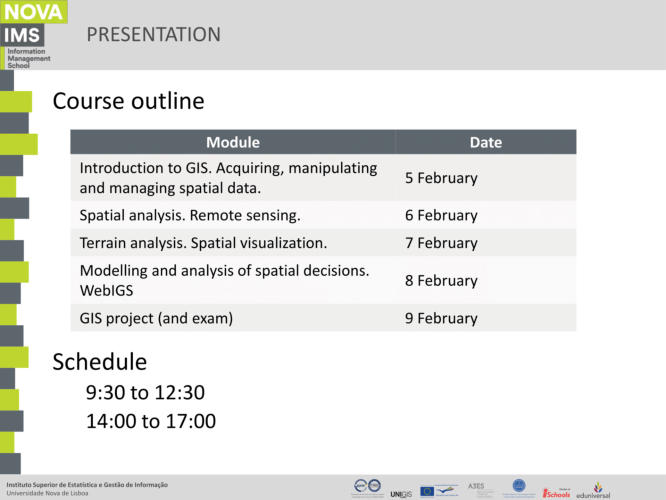
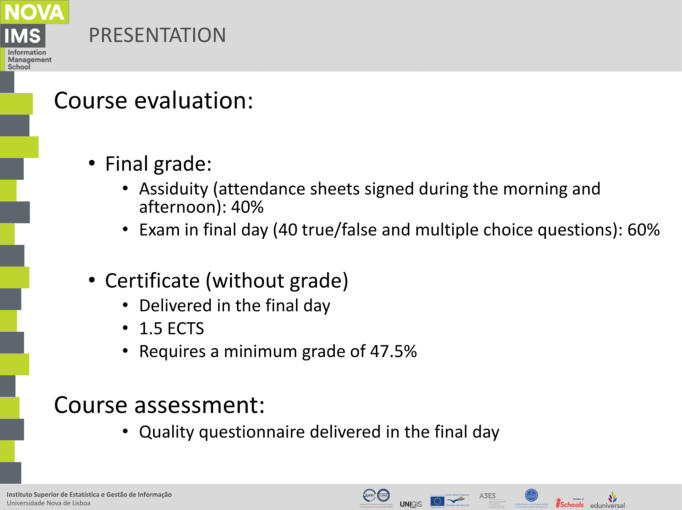
Some photos taken during the intensive course held at the
University of Glasgow
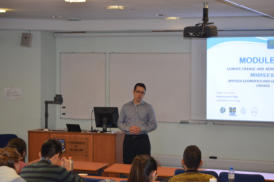
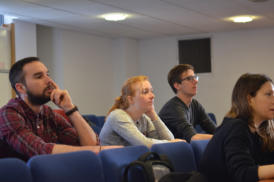

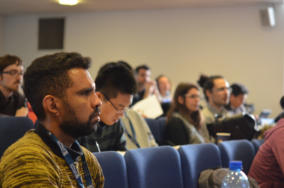

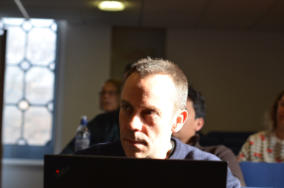

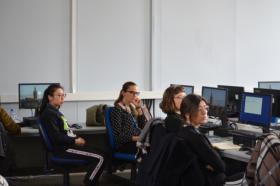
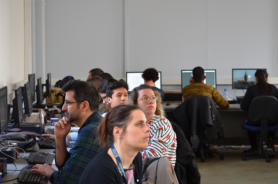
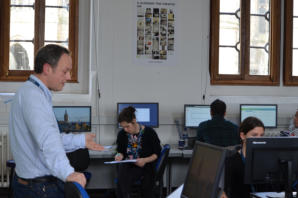
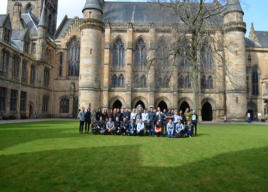
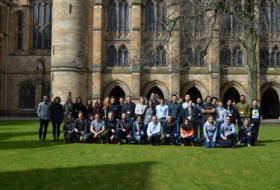
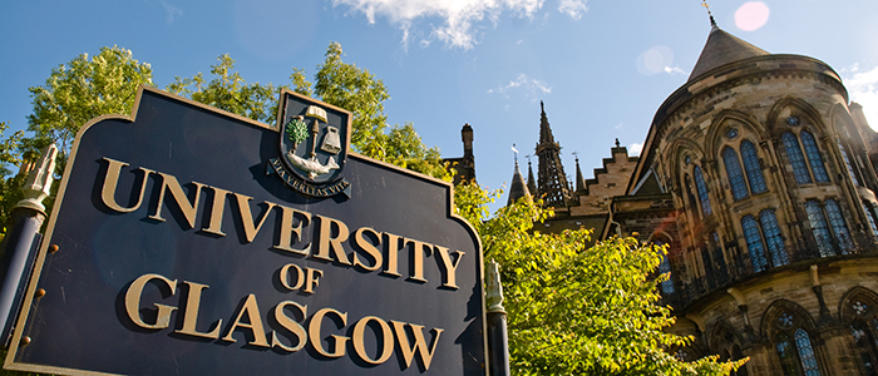
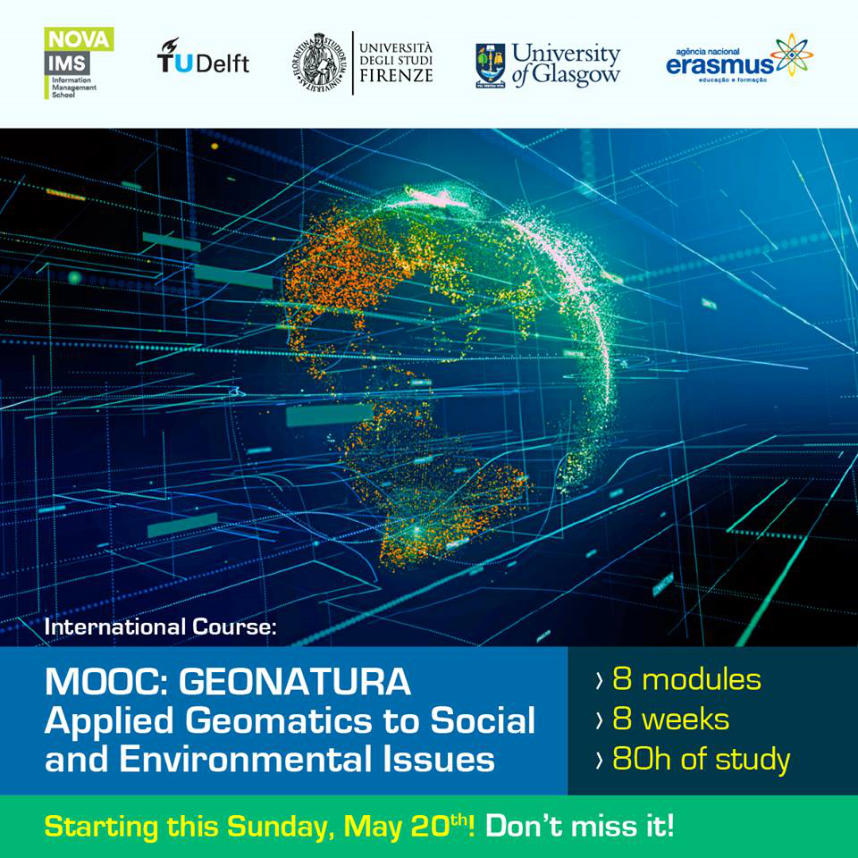

© Universidade Nova de Lisboa








News
May 2018
MOOC: GEONATURA - Applied
Geomatics to Social and
Environmental Issues
Starting May 20th
This is an international course in applied geomatics to socioenvironmental problems. It involves 4 European universities of excellence in the field of geographical information systems: U Nova of Lisbon, TU Delft, U Firenze and U Glasgow. The goal is to provide multidisciplinary training in applied geomatics to topics such as sustainable development and ecosystem services, land administration, architecture and build environment, sustainable forest and agriculture, smart sustainable cities, climate change, and renewable energy sources. This innovative 8-module course will allow you to choose alternative training paths according to your profile. This 8 weeks course is free, with approximately 80h of study and you have to complete a minimum of 4 modules to obtain a certificate. To register click here - https://goo.gl/TMpqh April 2018First blended learning
mobility accomplished in
Scotland, UK
During one week (Monday 9th – Friday 13th April 2018) the first blended learning mobility of GEONATURA project was held in the University of Glasgow. Each partner university selected a group of highly qualified students of master degree and doctoral study programmes from Portugal, Italy, UK and the Netherlands. Scholarships were provided to 10 selected students of each country. During the week GEONATURA team covered 8 modules with their teaching staff for an audience of 40 students in an intensive in-class course with seminars and computer lab exercises. Module 1 - Sustainable Development (delivered by teachers of the University of Glasgow, UoG) Module 2 - Sustainable Water Environments (delivered by teachers of the University of Glasgow, UoG) Module 3 - Land Administration (delivered by teachers of Delft University of Technology, TU Delft) Module 4 - Architecture & Built Environment/ Point Cloud Modelling (delivered by teachers of Delft University of Technology, TU Delft) Module 5 - Sustainable Agriculture, Farming and Forestry (delivered by teachers of the University of Florence, UniFi) Module 6 - Sustainable Rural Development (delivered by teachers of the University of Florence, UniFi) Module 7 - Smart Cities (delivered by teachers of NOVA Information Management School, NOVA IMS). Module 8 - Climate Change & Renewable Energy (delivered by teachers of NOVA Information Management School, NOVA IMS). In the last day of the in-class course programme a series of seminars was provided by external experts and professionals in the field of Geomatics as a multiplier event. The full programme of the event can be accessed here. Students who accomplished this phase 2 of blended learning mobility were awarded with a certificate issued by all partner universities and 1.5 ECTS. Students who participated in this course in Glasgow were requested to follow the e-learning modules that will be made available from May 2018. Photos of the event can be accessed in ourMarch 2018
Students nominated for
scholarships to first blended
learning mobility in Scotland,
UK
Each partner university of GEONATURA consortium delivered during the month of February 2018 an introductory course on geomatics that served as the main criteria for selection of candidate students for scholarships to undertake the first planned blended learning mobility (BLM) to be held in the premises of the University of Glasgow, Scotland, UK. The introductory course had similar content in each partner university and it was named Geographic Information Systems: from data to decision making. Each partner university was responsible for organizing and assigning the lecturer(s) to be involved in this introductory course and also for the selection of the 10 best students in their respective countries to be granted with the scholarships for first BLM. Each student will receive a scholarship that will provide financial support to costs associated with travel and accomodation in an intensive in-class course that will address various thematic areas in geomatics distributed in 8 modules to be delivered during one week. This intensive in-class course named as round 2 of first cycle of BLM will be held in the premises of the University of Glasgow (Scotland, UK) during the period from April 8 to April 14, 2018. The list of nominated students by each partner university to the first BLM in Glasgow can be accessed here. The programme of the GeoNatura Blended Learning Mobility workshop & multiplier event can be accessed here. The first BLM is being organized by the School of Geographical and Earth Sciences of the University of Glasgow. Invited lecturers from this School and also from other partner universities will contribute in the teaching activities of the first BLM during the planned week.January 2018
Preparation for the first
blended learning mobility of
GEONATURA project
Preparation of the module 0 Under the coordination of the Consortium leader - University NOVA of Lisbon - the period of preparation by partners for round 1 has been well completed, and the start-up is occurring in simultaneity at the four universities Glasgow, Florence, Delft and Lisbon. The announcement and call for registration of students to participate in stage 1 (introductory course on GIS – module zero) made in December 2017 and early January 2018 has been well received in the academic areas, and the number of candidates has largely exceeded the expectation. Among dozens of students who filled up the e-forms at each university, staffs will make a short-list of 20 candidates, totaling 80, who will attend to one- week introductory course in 30 hours of classes – module zero - following a common scope and itemization among universities. This will level candidates on the knowledge of fundamentals of GIS no matter their origin and nationality. Each partner university of GEONATURA consortium will deliver during the month of February/March a course for 20 students that will last 5 days (30 hours of training) and will take place in their own premises. However, nominated students can be those who are not regular students of the host university but resident in the same country. A certificate will be issued to all students who attend successfully this phase 1 of the course (module 0) and some faculties such as NOVA IMS will award 1.5 ECTS to those students who will accomplish the module 0 successfully. The best 10 students from each preliminary course offered by each partner university in their own premises will be selected on a final examination and will become participants of the BLM for round 1 in Glasgow, Scotland, UK. Those not selected could become eligible for trying the successive rounds to take place, and can also engage as users in the Geonatura MOOC as free lancers to be benefit by knowledge in a non- granted self-apprenticeship effort. The Programme and Agenda for the round 1 is ready and the event will occur from April 9, Monday to April 13. Friday in full time basis for all, comprising classes, workshop and multiplier event.GEONATURA consortium
launched the kick-off meeting
in Lisbon, October 2017
The 3-day kick-off meeting having University NOVA of Lisbon as the host partner defined the fundamentals on scope, strategy, performance, assignment of responsibilities, time-schedules, organization, coordination, administration, communication and relation to Erasmus+ Agency. Partners have contributed to plan and solve questions for preparing the educational package in an OER platform, through a Massive Online Open Course (MOOC).The common understanding by Partners on the extent of the Open Educational Resource Platform for Geomatics Applications to Social and Environmental issues was fine. The focus of modules will be then driven to socio- environmental issues supported by geo- referenced data. The overall programme for the sequence of activities of the 4 rounds of teaching & training activities to granted students was decided to take place in Spring / Autumn 2018, and Spring / Autumn 2019. It will contemplate the preparation of 9 MOOC modules, including lessons and classes for the introductory course on Applied Geomatics and GIS – module zero. Also, it includes the structuring, organization and preliminary agenda for the BLMs (Blended Mobility) +MEs (Multiplier Event) and ROITs (Remote Online Training) the procedure for exam and certification of students followed by Referral Letters which are to be applicable to all 4 rounds. The 8 modules will be prepared under a scheme of permanent information exchange by partners to manage possible interfaces on subjects of themes and topics as well as to better explore synergy on relevant fields bringing innovation to the completely educational package. The overall strategy for provisioning innovation to the educational package was approved considering several toolboxes and software. It comprises story maps and animation to enhance teaching and training materials, synergy and interaction in transversal way among related subjects on different areas, customization of learning materials in modules according to academic orientation of students, coherence of initiatives in the overall strategy to assure dissemination for different audience. Also the means and resources to enhance dissemination were discussed with different types of links to enlarge scope of knowledge by users, and the organizing of a reliable stakeholders support either for services or products, together with an effective advertisement and e-marketing in the Internet community, including procedures for enlarging audience and assure sustainability of Geonatura MOOC.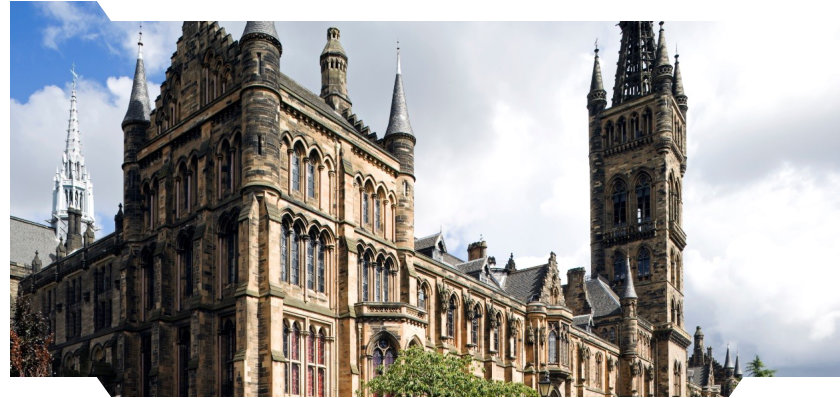

A Project funded by Erasmus Strategic Partnerships for higher education














